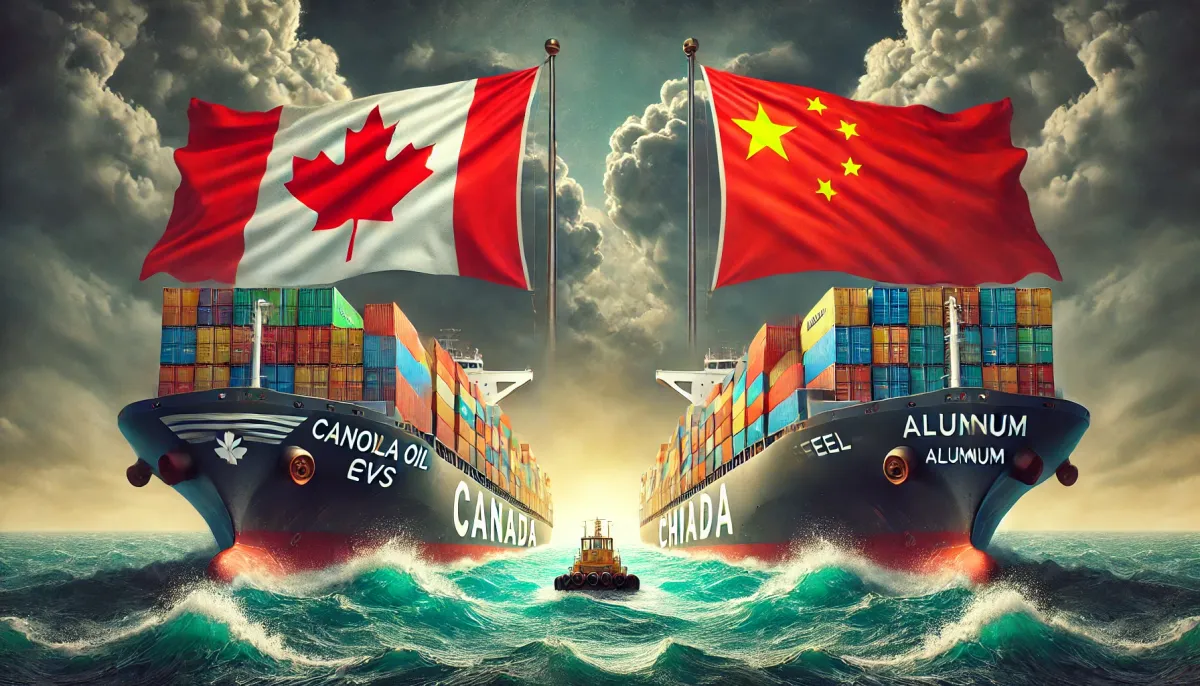
In a significant escalation of trade tensions, China has imposed a 100% tariff on imports of Canadian canola oil and related products, effective March 20, 2025. This move is widely viewed as retaliation against Canada's earlier decision to levy substantial tariffs on Chinese electric vehicles (EVs), steel, and aluminum.
Canada's Initial Tariffs on Chinese Goods
In October 2024, Canada implemented a series of tariffs targeting Chinese imports:
- Electric Vehicles: A 100% surtax was imposed on all Chinese-made EVs, effective October 1, 2024. This measure aimed to protect Canada's burgeoning EV industry from what it described as unfair competition due to China's state subsidies and market-distorting practices.
- Steel and Aluminum: On October 22, 2024, Canada enforced a 25% surtax on Chinese steel and aluminum products. The government cited concerns over China's overcapacity and the resulting adverse effects on global markets.
These actions aligned Canada with similar measures taken by other Western nations, including the United States and the European Union, which have expressed apprehensions about China's trade practices.
China's Retaliatory Measures
In response, China announced on March 8, 2025, that it would impose new tariffs on Canadian agricultural products, effective March 20, 2025:
- Canola Products: A 100% tariff was levied on Canadian canola oil and related products.
- Other Agricultural Goods: A 25% tariff was applied to Canadian pork and certain seafood products.
China's Ministry of Commerce stated that these measures were a direct counter to Canada's earlier tariffs, which they claimed violated World Trade Organization rules and harmed Chinese industries.
Impact on Canadian Agriculture
The imposition of these tariffs presents significant challenges for Canadian farmers and exporters:
- Canola Industry: Canada is one of the world's largest producers of canola, with China being a major market. The 100% tariff effectively prices Canadian canola products out of the Chinese market, leading to concerns about surplus stock and declining prices.
- Pork and Seafood: The 25% tariff on pork and certain seafood products threatens to reduce Canada's competitiveness in the Chinese market, potentially leading to a decline in exports and revenue for these sectors.
Industry representatives have expressed deep concern over these developments, highlighting the potential for significant economic losses and urging the Canadian government to seek resolutions through diplomatic channels.
Broader Trade Implications
This bilateral trade dispute occurs amid a complex global trade environment:
- Global Trade Tensions: The escalation between Canada and China adds to existing global trade tensions, particularly involving major economies like the United States, which has also engaged in tariff exchanges with China and other nations.
- Economic Uncertainty: The imposition of reciprocal tariffs contributes to economic uncertainty, affecting global supply chains, commodity prices, and international trade relations.
Conclusion
The ongoing tariff dispute between Canada and China underscores the fragility of international trade relationships and the far-reaching impacts of protectionist measures. As both nations grapple with the consequences, industries and consumers worldwide may experience the ripple effects of these economic policies.
Let’s Keep Talking:
Jenny is a business insurance broker with Waypoint Insurance.
She is also a business development consultant with Impresario Partners, helping Canadian Business expand overseas.
She can be reached at 604-317-6755 or jhansen@waypoint.ca. Connect with Jenny on LinkedIn and BlueSky.
Let’s Meet Up:
Jenny Holly Hansen is a cohost with Chris Sturges of the Langley Impact Networking Group. You are welcome to join us on Thursday’s from 4pm to 6pm at: Sidebar Bar and Grill: 100b - 20018 83A Avenue, Langley, BC V2Y 3R4
Tags: #Jenny Holly Hansen #China #Tariff #Canola Oil #Electric Vehicles #Steel and Aluminum #Agricultural Goods #Pork and Seafood.

